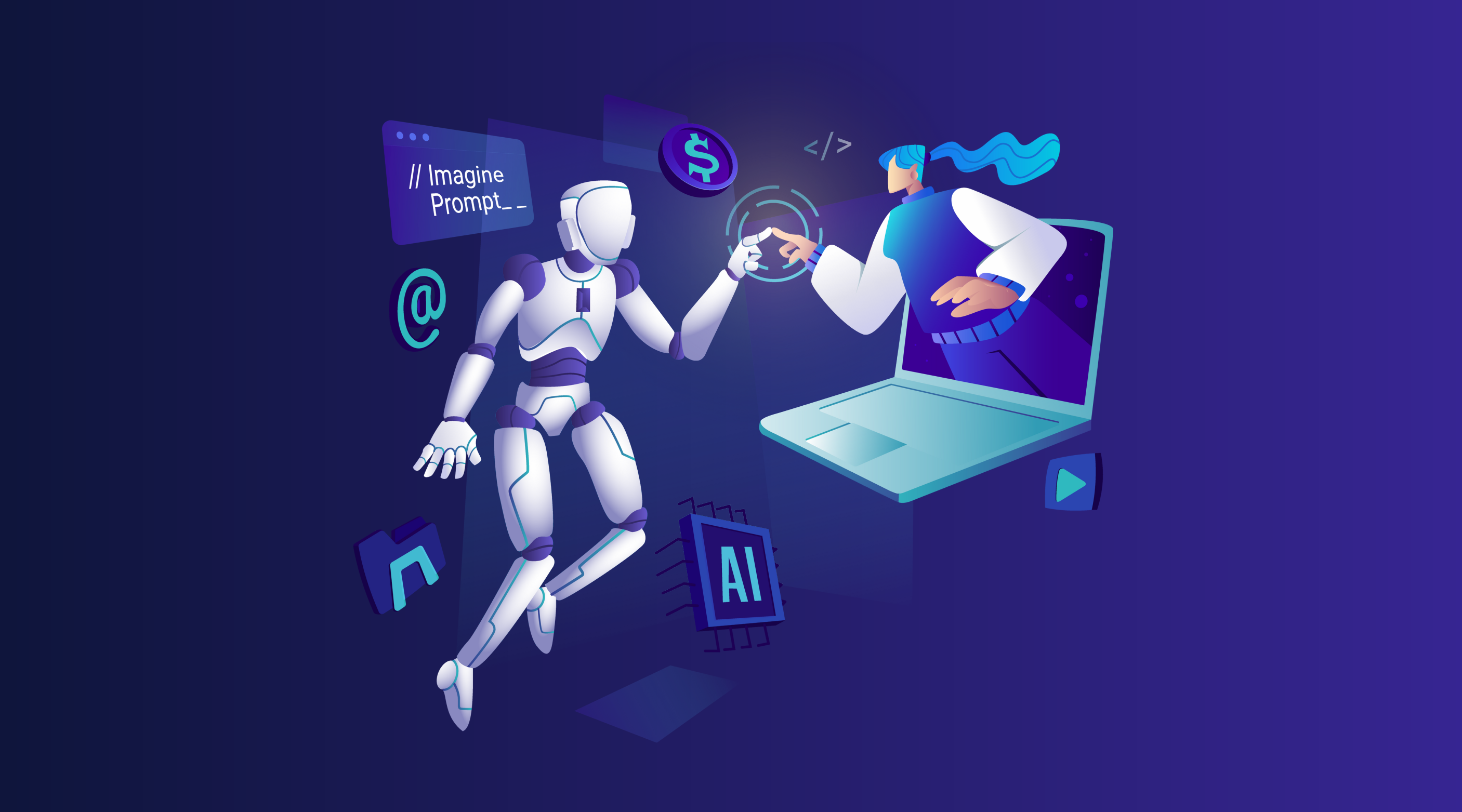In today's digital era, the marketing landscape is evolving at an unprecedented pace. Businesses are increasingly turning to artificial intelligence (AI) to gain a competitive edge. AI is not just a buzzword; it's a transformative technology that is revolutionizing marketing strategies. In this blog, we'll delve into how AI is reshaping marketing, the benefits it offers, and practical ways to implement AI in your marketing efforts.
The Rise of AI in Marketing
AI for marketing involves using intelligent algorithms and data analytics to optimize and enhance marketing activities. This shift towards AI-driven strategies is driven by the need for more precise, data-informed decision-making. From predictive analytics to personalized customer experiences, AI is making marketing more efficient and effective.
- Predictive Analytics: Leveraging historical data to predict future trends and customer behaviors.
- Customer Segmentation: Identifying and targeting specific groups of customers with tailored campaigns.
- Automated Content Creation: Using AI to generate high-quality content based on data insights.
Benefits of AI for Marketing
AI offers numerous advantages that help businesses stay ahead in a competitive market. By automating routine tasks and providing deep insights, AI enhances the effectiveness of marketing campaigns and strategies.
Enhanced Customer Insights
AI analyzes vast amounts of data to uncover patterns and insights about customer behavior. This helps businesses understand their audience better and tailor their strategies accordingly.
- Data Analysis: AI processes large datasets to identify trends and patterns.
- Behavioral Insights: Understanding customer preferences and predicting future actions.
- Market Trends: Keeping up with the latest trends to stay relevant and competitive.
Personalization at Scale
AI enables marketers to deliver personalized experiences to each customer. Whether it's through personalized email campaigns or tailored product recommendations, AI makes it possible to cater to individual preferences on a large scale.
- Email Campaigns: Crafting personalized messages based on customer data.
- Product Recommendations: Suggesting products that match individual preferences.
- Customer Journey Mapping: Creating customized paths for each customer's journey.
Implementing AI in Your Marketing Strategy
Adopting AI in marketing requires a strategic approach. Businesses need to identify the right tools and techniques to integrate AI effectively into their marketing processes.
Choosing the Right AI Tools
Selecting the appropriate AI tools is crucial for successful implementation. These tools should align with your business goals and marketing objectives.
- AI Platforms: Comprehensive platforms that offer a range of AI-driven marketing solutions.
- Data Analytics Tools: Tools that help in analyzing and interpreting data.
- Automation Software: Solutions for automating repetitive tasks and processes.
Integrating AI with Existing Systems
For a seamless transition, it's essential to integrate AI tools with your existing marketing systems. This ensures that all data and processes are streamlined and efficient.
- CRM Integration: Syncing AI tools with customer relationship management systems.
- Data Management: Ensuring data is clean, organized, and accessible.
- Workflow Automation: Streamlining marketing workflows with AI-powered automation.
Overcoming Challenges in AI Adoption
While AI offers numerous benefits, there are challenges that businesses might face during adoption. Understanding these challenges and preparing to address them is key to successful AI implementation.
Data Privacy and Security
With the increasing use of AI, data privacy and security have become major concerns. Businesses need to ensure that customer data is protected and compliant with regulations.
- Compliance: Adhering to data protection laws and regulations.
- Security Measures: Implementing robust security protocols to safeguard data.
- Transparency: Being transparent with customers about data usage and protection.
Skill Gap and Training
Implementing AI requires a skilled workforce. Businesses need to invest in training and development to equip their teams with the necessary skills.
- Training Programs: Offering training sessions and workshops on AI tools and techniques.
- Hiring Experts: Bringing in AI specialists to lead the implementation process.
- Continuous Learning: Encouraging ongoing education and skill development.
Future of AI in Marketing
The future of AI in marketing looks promising. As technology continues to advance, AI will play an even more significant role in shaping marketing strategies. Businesses that embrace AI early will have a competitive advantage.
Emerging Trends
Keeping an eye on emerging trends can help businesses stay ahead of the curve. AI will continue to evolve, bringing new opportunities and challenges.
- Voice Search Optimization: Adapting marketing strategies for voice search technologies.
- AI-Driven Creativity: Using AI to enhance creative processes and content creation.
- Customer Experience: Leveraging AI to create seamless and engaging customer experiences.
Conclusion
AI for marketing is not just a trend; it's a necessity for businesses looking to thrive in a competitive market. By leveraging AI, companies can gain deeper insights, deliver personalized experiences, and optimize their marketing strategies. As we move forward, the integration of AI in marketing will continue to grow, offering even more opportunities for innovation and success. Embracing AI now will set the foundation for a more efficient and effective marketing future.
By following these guidelines and leveraging the power of AI, businesses can transform their marketing strategies, improve customer engagement, and achieve better results. The future of marketing is here, and it's powered by AI.

